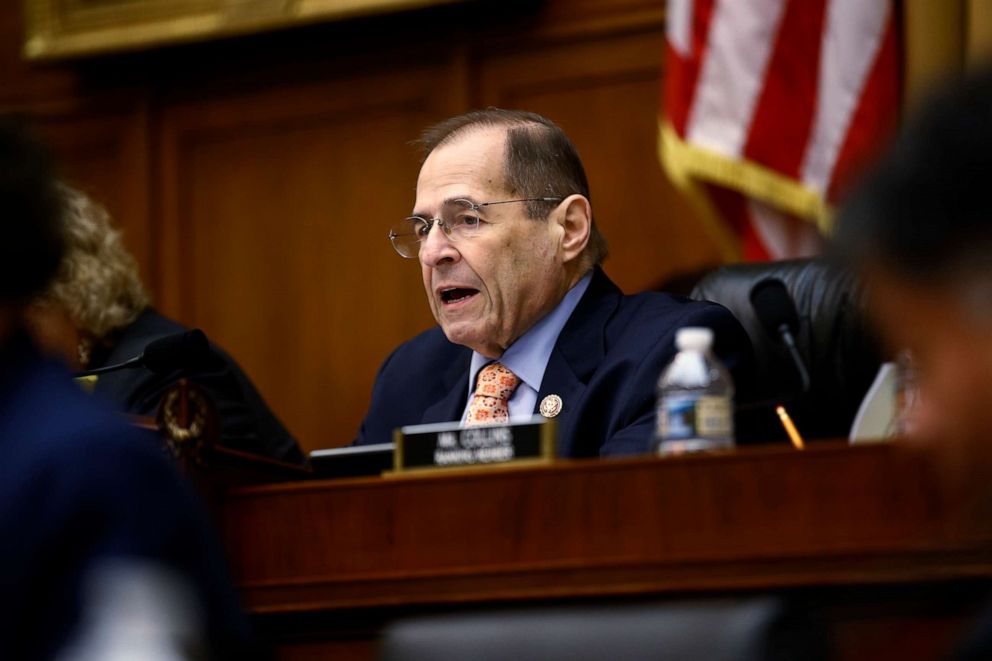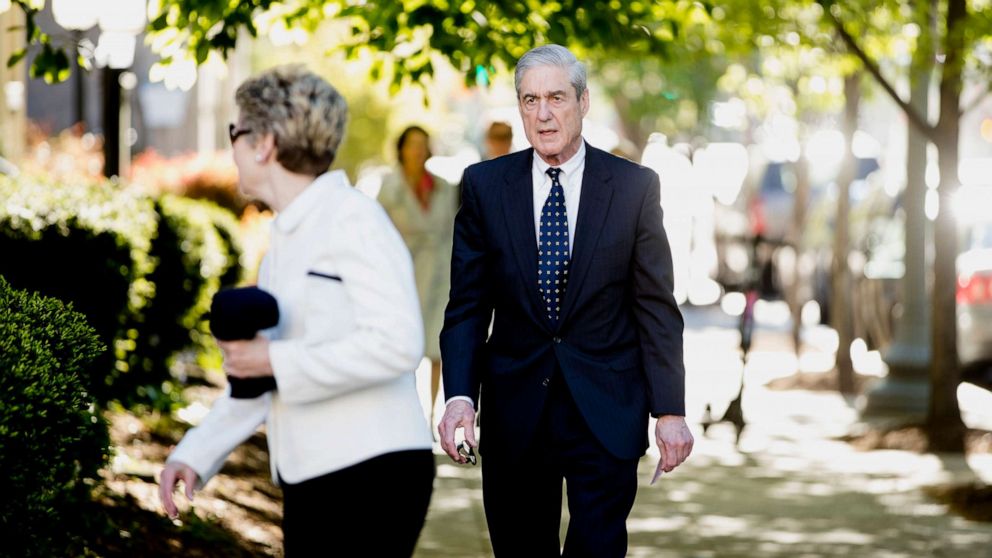Robert Mueller wants to avoid 'political spectacle' before Congress: Nadler
Special counsel Robert Mueller is eager to avoid the politics swirling around his investigation into the Trump campaign and Russia’s 2016 influence efforts and doesn’t want to testify publicly on Capitol Hill about his findings, House Judiciary Committee Chairman Jerry Nadler said Thursday.
“He doesn't want to be public in what some people will regard as a political spectacle, I think,” Nadler said in an interview with MSNBC, confirming reports from ABC News and other outlets about House Democrats pushing back on DOJ's offer for limited Mueller testimony.
“He’s willing to make an opening statement, but he wants to testify in private,” he said. “We think it's important for the American people to hear from him and to hear his answers to questions about the report.”
Nadler and the committee have been in discussions with Justice Department officials about Mueller’s appearance for weeks, after initially proposing the special counsel appear on May 15.
President Trump, after initially suggesting Mueller shouldn’t testify, said he would defer to Attorney General Bill Barr. The attorney general has repeatedly said he has no objections to Mueller testifying.
"Why should he have to testify?" Trump said Friday. "It's ridiculous."
“He envisions himself correctly as a man of great rectitude and apolitical and he doesn't want to participate in anything that he might regard as a political spectacle, especially if Republicans on the committee start asking him questions about the beginning of the -- about this stuff, the beginning of the investigation,” Nadler said.

While Republicans have concerns about the origins of the investigation into the Trump campaign, Democrats have wanted to push Mueller on his findings, particularly on his decision not to make any determination as to whether Trump obstructed justice, after outlining several episodes of potential obstruction of the investigation into his campaign.
Additionally, the special counsel’s probe uncovered no evidence that Trump or Trump campaign officials conspired with Russia to influence the 2016 election.
Some House Democrats expressed a willingness this week to accommodate his reservations about a nationally-televised public hearing, and suggested that they could accept some limitations on his public testimony.
“I think it's important that he can make his statement,” Rep. Steve Cohen, D-Tenn., a member of the House Judiciary Committee, told ABC News. “He can do that with a lengthy statement to explain his report, and respond to questions [in private].”
House Intelligence Committee Chairman Adam Schiff, D-Calif., whose committee is also in negotiations with Justice Department officials about Mueller appearing before his panel, acknowledged that it wouldn’t be possible to discuss some elements of Mueller’s investigation publicly.
“There may be certain aspects involving classified information that we'll need to have in closed session,” Schiff said. “But it's also vitally important that the department try not to censor what he can say to our committee.”
“It is one thing to have him testify in public, it's another if the Justice Department sits behind him and tells him he can't answer this question, or that question, or do more than just read his own report. That won't fly.”
Nadler said Thursday that his committee would release transcripts from any closed-door session with Mueller, and didn’t rule out potentially hearing from the special counsel’s deputies, or other subject-matter experts in the coming weeks.
Democrats continue to press the Justice Department to provide the committee with the full, unredacted Mueller report, as well as the underlying materials gathered in the probe. Barr has not complied with a subpoena for both – and has instead offered a select group of lawmakers access to more materials at the Justice Department -- leading Democrats to try to hold him in contempt of Congress.
They are also grappling with the Trump administration over access to witnesses as part of efforts to follow up on Mueller’s findings. Former White House counsel Don McGahn defied a committee subpoena for his testimony, after the White House ordered him not to comply. The panel has also issued a subpoena for documents and testimony from former White House communications director Hope Hicks, and McGahn’s former chief of staff Annie Donaldson.




